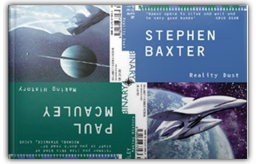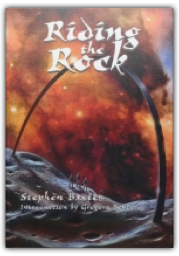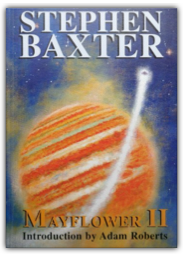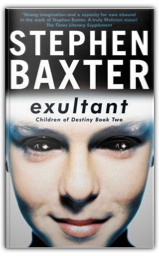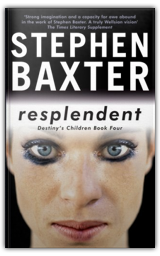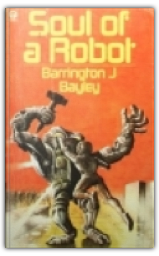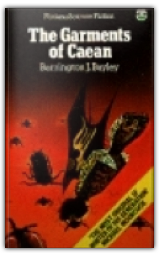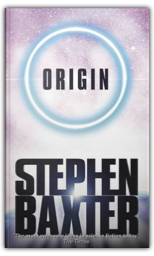 Origin
Stephen Baxter
Origin
Stephen Baxter
Stephen Baxter continues to think big and create SF on a grand cosmic scale in Origin, the third novel of his Manifold trilogy. 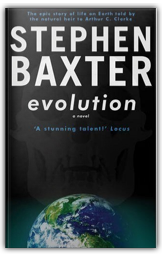 Evolution
Stephen Baxter
Evolution
Stephen Baxter
In Evolution, Stephen Baxter explores deep time to dramatise the story of Earth's evolving primates—from tiny shrew-like creatures dodging reptilian predators in the Cretaceous era, to humans of the 21st century and beyond. 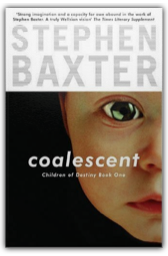 Coalescent
Stephen Baxter
Coalescent
Stephen Baxter
COALESCENT is the first of a trilogy of novels that does nothing less than tell the story of mankind's possible evolutions and our role in the Universe. Coalescent charts a radical divergence in our evolution; the development of a human hive entity. It is a divergence that has its roots in the dying days of the Roman Empire. The story is told through twin narratives; one takes us through the falling apart of the Roman control of Britain as seen by one girl, the other covers a man's search for a lost sister. A sister who may be living as part of an ancient and secretive order in Rome. Through these diverse personal stories Stephen Baxter charts a story that has terrifying consequences for what we thought was our place in the world, our perceived natural ascendency in the order of things. Things are going to be very different now ...  The H-Bomb Girl
Stephen Baxter
The H-Bomb Girl
Stephen Baxter
Liverpool 1962. A place and time of danger and passion. A thrilling new music is bursting on to the grey streets of the post-war city. A music that electrifies. A music that promises to change everything. But in Cuba, on the other side of the earth, nuclear tensions are at breaking point. The end of the whole world could be just days away. At the heart of it all is 14-year-old Laura Mann. She's on the run, hunted by strange forces fighting over the future of humanity. And Laura's about to discover that her own life is at stake - in ways she could never have imagined... |
 Made with Delicious Library
Made with Delicious Library
London, State zipflap congrotus delicious library Scott, Mike



